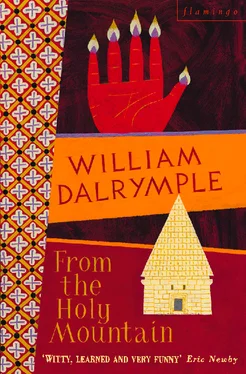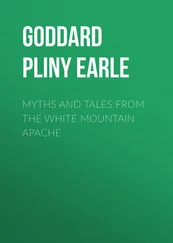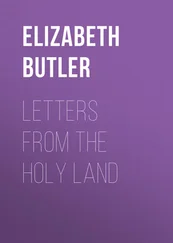1 ...6 7 8 10 11 12 ...30 Dimitrios said that the war in Bosnia – with Orthodox Serbs committing atrocities against Muslims – and the recent resurgence of Islamic fundamentalism in Turkey, had made everything much worse. The Phanar windows were broken by stones on an almost daily basis, while its perimeter walls were regularly covered with spray-painted threats such as ‘Patriarch, you will die!’ Moreover, there had been a renewed bout of grave desecration at the disused Greek cemetery at Yenikoy; blazing rags soaked in petrol had been thrown over the Phanar walls, starting a small fire; and three small firebombs had gone off a month previously in two nearby Greek girls’ schools and the Church of the Panaghia.
But the most serious problem, said Dimitrios, revolved around the Phanar gateway. In 1821 the Greeks sealed the main door of the Phanar after the Sultan had hanged the then Patriarch, Gregorios, from its lintel. The Turks always considered the sealing a snub, and recently the Refah party had revived the issue by threatening to break open the gate by force. Then last month, on the eve of the anniversary of the fall of Byzantium to the Ottoman Turks, a huge bomb was found planted next to the gate inside the main courtyard. It was defused in time, but had it gone off not only the gate but the entire Phanar would have been reduced to a large crater.
‘They left a note near the bomb,’ said Dimitrios. ‘I’ve got a translation somewhere.’
He rummaged around in his drawers and drew out a file. From it he took a single sheet of foolscap. ‘Read this,’ he said.
FROM THE GENERAL HEADQUARTERS OF THE FIGHTERS OF LIGHT
Our administration has targeted the Patriarchate and its occupying leader, who behind what he considers insurmountable walls takes pleasure in the shedding of the blood of the Muslim people of the East, and to this end he is working on suspect and fiendish plans. We will fight until the Chief Devil and all the occupiers are chased off; until this place, which for years has contrived Byzantine intrigues against the Muslim peoples of the East, is exterminated. Occupiers disappear! These Lands are ours and will remain ours. We warn you one more time: there is no right to life for those who are occupiers.
Until the Greek Patriarchate and the Devil, the ridiculous Bartholomaios who wears the robes of the Patriarch, disappears from behind the thick walls where he plans his fiendish intrigues, our fight will continue. Patriarch you will perish!
Long live our Islamic Fight! Long live our Islamic Liberation War!
THE CENTRAL HEADQUARTERS OF LIGHT
‘After this,’ said Dimitrios, ‘our young have finally become convinced that there is no future for them here.’
‘I can see their point.’
‘Now it’s just the old who remain. Our priests here are sick and tired of funerals. A single baptism – or rarer still, a marriage – is the event of the year.’
I asked whether the Phanar was getting enough young priests coming up to keep the place going.
‘The Turks closed our only seminary in 1971,’ replied Dimitrios. ‘It’s cut the bloodline of our existence. A decade from now, when the older bishops have all died, there will be no clergy left. After 1,500 years, the Ecumenical Patriarch will have to leave Constantinople.’ Dimitrios sighed. ‘A century ago this was the centre of Greek Istanbul. Today there are no Greeks at all left around here. On a very good Sunday the Patriarch may still get a hundred people in this church. On a bad one he can’t even fill the first two rows of pews. Come down and see what it’s like at vespers.’
“Who will be there?’
‘I fear just you, me and the angels.’
Fr. Dimitrios’s apprehensions were justified. The service had already begun. One old bishop was standing at a lectern chanting hymns for the saint of the day. The other officiating priest, a bent-backed octogenarian, clanked a thurible from behind the iconostasis. There was no congregation in this, the senior church of Eastern Christendom, the Orthodox St Peter’s; not one person occupied the empty pews. After a few minutes the bishop gave the dismissal and both old men quickly left the church.
‘Look at your watch,’ said Fr. Dimitrios. ‘Exactly 4.15. It never takes a minute longer when it’s an empty church. Our priests don’t feel inspired. In fact they feel almost embarrassed.’
From the Phanar I walked through the old city to the Armenian Patriarchate in Kum Kapi, overlooking the Sea of Marmara. In London, Armenian friends had told me horror stories about the fate of the sixty thousand Armenians left in Istanbul: that Refah party activists had taken to slopping buckets of human urine into Armenian church services, as well as regularly vandalising the graveyards and churches. My friends had told me that the parish councils hushed these things up for fear that they would be accused of ‘making anti-Turkish propaganda’, but I hoped that the staff of the Patriarchate might at least be able to confirm or deny what I had heard.
The Patriarchate was a lovely wooden Ottoman building with a pediment and slatted louvres. After a short wait I was shown in to a plump Armenian priest, who called for tea and chatted happily about his trip to England twenty years previously. But when I turned the conversation to politics he just raised his palms and shrugged, indicating clearly – if wordlessly – that it would be undiplomatic for him to comment.
As I was leaving, I mentioned that I had just been to the Phanar: ‘Watch out, then,’ he whispered. ‘The Phanar is full of informers. Your phone will be tapped and they’ve probably followed you here. Don’t leave your notebooks – or anything valuable or incriminating – in your hotel room.’
The old Middle Eastern paranoia, one of the strongest legacies of the Ottomans, a shadow which falls uniformly from the Danube to the Nile. I smiled, but – as always happens after such a warning – did find myself looking behind me on my way back, to see if I was being followed.
Of course, there was nobody there.
John Moschos did not like Constantinople, and he makes this dislike quite apparent in The Spiritual Meadow . One of his Constantinople stories concerns the astonishing sexual appetites of the Emperor Zeno; another is about a priest in the capital who ‘was indulging in murder and dabbling in witchcraft’; a third is an anti-Semitic rant against a Jewish glassblower who tries to burn his eldest son to death after the boy announces that he plans to convert to Christianity. There are several other such tales, all designed to show the Byzantine capital – ‘the city where the wicked rulers lived’ – in a very dim light.
In some ways, Moschos’s reaction is a little surprising. After all the monk admired the other two great Byzantine metropolises – Antioch and Alexandria – for their learning, and this was something in which the Imperial capital also excelled. Certainly Constantinople’s university could not compare with that of Alexandria, but ever since the Emperor Theodosius II endowed a number of chairs in subjects such as medicine, grammar, rhetoric, law and philosophy, it had grown in size and stature, its reputation augmented by the presence nearby of the city’s great public library.
Shortly before John Moschos arrived in the capital, his friend and mentor Stephen the Sophist had been lured to Constantinople from the School of Alexandria, where for many years he had lectured on medicine, philosophy, astronomy, astrology, horoscopy and ecclesiastical computus. Stephen should have been able to introduce Moschos to Constantinople’s leading luminaries, men like the great historian Theophylact Simocatta; yet there is no indication in Moschos’s writing that he met any particularly inspiring figures during his stay in the city.
Читать дальше












